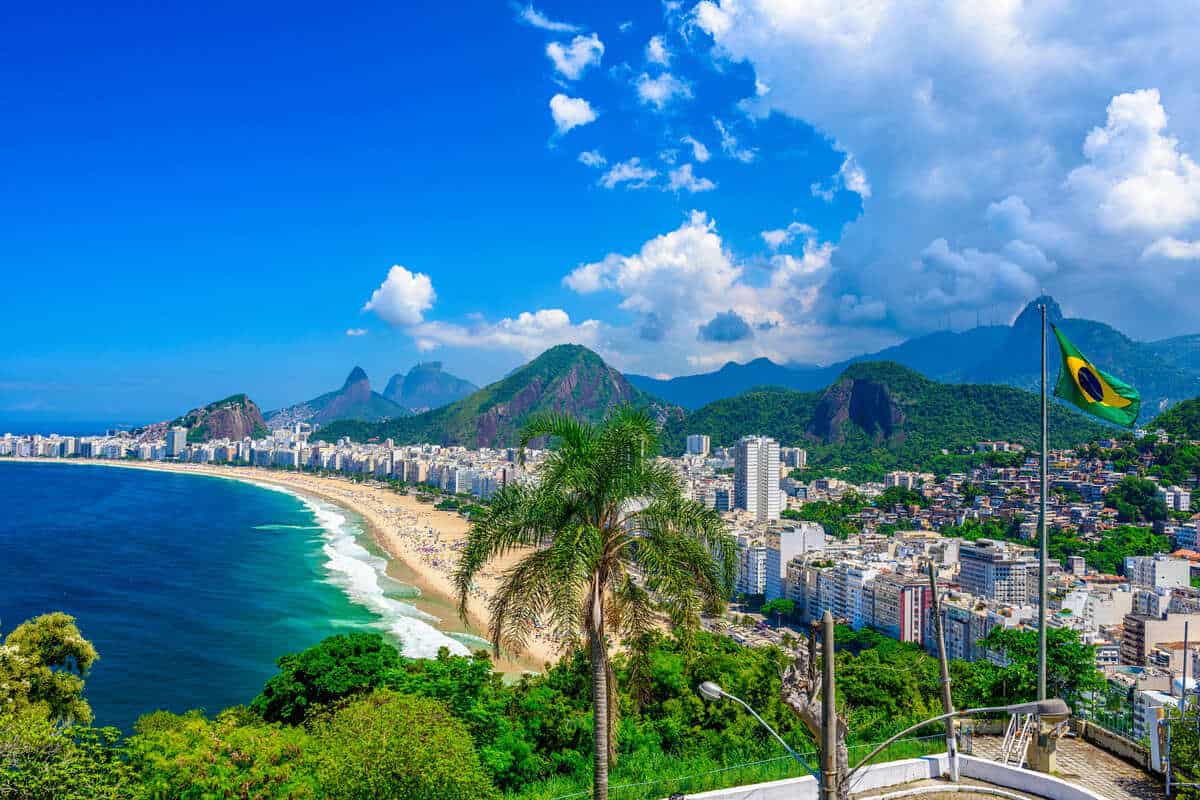In a major overhaul of its immigration system, Brazil has decided to re-impose visa requirements on American tourists seeking entry to the country. The decision comes on the heels of Luiz Inacio Lula da Silva, the country’s new left-leaning President, taking office.
Americans had been exempt from requesting a pre-departure visa ahead of boarding a Brazil-bound flight since 2019, when former President Jair Bolsonaro formally revoked the country’s reciprocity policy and allowed Americans – and on extent Canadians, Australians and the Japanese – to visit hassle-free.
Now, citizens of these four countries will no longer enjoy visa-free entry to Brazil:
Brazil Reinstates Visa Reciprocity

Historically, Brazil has always applied reciprocity when it comes to visa issuance. This means that, as long as foreign countries grant visa waivers to Brazilian nationals, their own citizens would, in theory, be automatically entitled to visiting Brazil without applying for a visa.
Similarly to Mexican citizens, Brazilians need pre-issued tourist visas to enter or transit the United States, a measure that had led the Brazilian Government to impose a similar requirement on U.S. passport holders until 2019. Due to a political decision, this policy was then overturned in 2019:

In a bid to boost the country’s slow-developing travel industry, which hosts on average between 3.6 million and 5 million tourists per year only, former President Jair Bolsonaro ignored the reciprocation rule and enabled U.S. citizens to cross any Brazilian external border by presenting a valid biometric passport.
For the last three years, Americans enjoyed unrestricted access to South America’s largest and most economically important nation, being granted a three-month stay upon arrival, which could then be extended for a further three months if the applicant so wished.

From 2023, the privilege is expected to be scrapped.
When Is The Visa Requirement Coming Into Force?
We don’t know yet.
So far, the Brazilian Government has not yet established a date for the implementation of the new visa requirement, though based on local news outlets, it could happen at any point in the next few weeks or months. The absence of a precise date is already leading to widespread uncertainty.

Americans – and Canadians – who have booked vacations in Brazil to be undertaken this year now are unsure whether they’ll be eligible for a visa waiver prior to departure, as the reciprocity rule could be re-applied with little warning. To add to their woes, Brazil is yet to lift pandemic-era border rules, continuing to mandate that non-vaccinated Americans get tested.
As we have stated previously, these factors contribute to its classification as South America’s least tourist-friendly destination – not to mention a lacking infrastructure and exceedingly high crime levels across a majority of densely-populated urban centers, including tourist hotspots like Rio, Sao Paulo, and Salvador.

Brazil is still home to stunning nature, encompassing a pristine Atlantic coastline, humid Atlantic forests, epic waterfalls – think Iguazu, 1/7 of the wonders of nature, and of course, the Amazon rainforest. Brazilians are also some of the most kind-hearted and welcoming people in the world:
While you shouldn’t let your guard down in big state capitals, you will find locals are genuinely interested in befriending and getting to know you and introducing you to their diverse culture, molded both by Portuguese-Iberian and African influences, and they will go out of their way to ensure you have a cracking time.

The only major downside, regrettably, is the way politics have been handled for years, regardless of the incumbent President. Brazil remains miles behind other far more developed tourist destinations in the Latin World, such as Chile or Mexico, and instead of opening up further, it is slamming doors shut.
In 2019, following the visa waiver announcement, the number of American tourists vacationing in Brazil increased by 12% compared to the previous year, proving the relaxed approach to borders has the potential to benefit the local tourism sector.

How Will Visa Applications Be Handled?
The Ministry of Foreign Affairs has already warned Brazilian Embassies abroad that the reciprocation measure will be reinstated, requesting that they contact the relevant authorities in all four countries affected – the United States, Canada, Australia, and Japan – to inform them about the decision.
Once the new requirement is in place, should the new visa policy be that of a physical visa, Americans will be expected to find a Brazilian Consulate that’s nearest to them in order to submit an application formally. An extensive list of documents attesting to the purpose of their visit and a visa appointment will be required.

At this point, we are not able to inform you how visa applications will be processed or whether e-Visas could be brought in instead to make the process smoother. It is worth reminding Americans continue to be subject to health restrictions entering Brazil. They must either be:
- Fully vaccinated; or
- Present a negative pre-departure test
European Union citizens (EU) and British nationals, and a vast majority of other nationalities are not affected by the new visa rule as Brazilian citizens can enter both the EU and the U.K. visa-free. In total, there are 171 countries (out of 195) Brazil has signed a visa-waiver agreement with, facilitating international travel for both Brazilians and nationals of those states.

In Australia’s case, Brazilians are eligible to request a simpler visa that is issued digitally via e-mail, but we’re not sure yet whether the Brazilian Government will allow Australians to submit applications via the same less-cumbersome route.
When it comes to visa-waiver agreements between Brazil and third parties, the United States is not of them.

